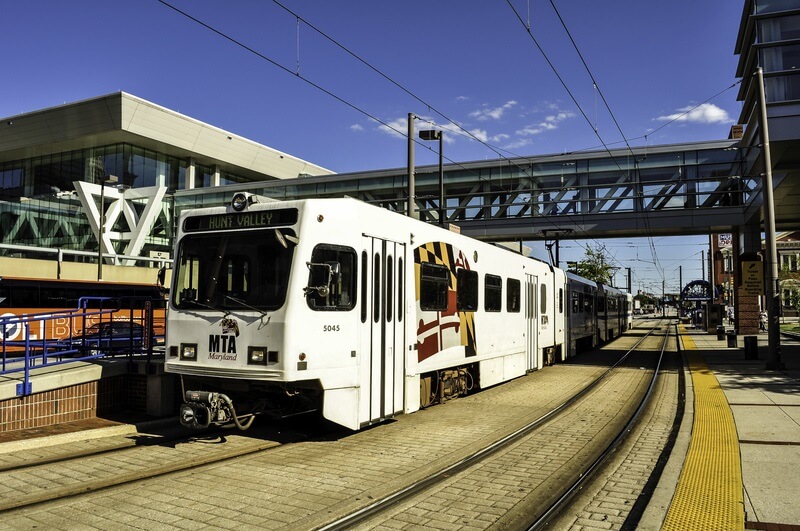
School board members work hard but usually get more grief than appreciation for their labors. I was one of them, serving two separate stints on the Baltimore City school board.
Nonetheless, the evidence is overwhelming that school boards generally do more harm than good. And their negative impact is getting worse.
Media stories portray daily how school boards across the U.S. are at war over pandemic policy, critical race theory, gender issues, bans on library books, and you name it. A Reuters special report was titled, “School boards get death threats amid rage over race, gender, mask policies.” A national expert Christopher T. Cross, a former president of the Maryland State Board of Education, recently observed: “The governing of public schools in many communities is nearing total collapse.”
In Maryland, it’s hard not to notice the escalating school board battles. An article last month in The Baltimore Sun was headlined “Maryland suburban school board races ‘fertile ground’ for conservative activists angered by COVID-19 mandates.” In this year’s session of the General Assembly, a torrent of bills addressed whether boards should be elected or appointed, the role of student board members, and even the authority to mandate masks.
None of major significance based, and given the national trends, that’s to the credit of our legislators. The last thing our beleaguered schools need is more of the rabid conflict witnessed in recent years in Baltimore and Prince George’s counties.
All the while, no one has evidence or even a good clue as to what a model school board should look like. In Maryland, at present, 19 boards are elected, one is appointed, and four are a hybrid of elected and appointed members. Yet there’s no rhyme or reason for which is which except for the ups and downs of local politics.
Red-hot conservatives are doing most of the damage. They are determined, and unfortunately succeeding, in making public schools a wedge issue in national, state and local politics.
But liberals are not totally blameless. Throughout the history of public education, they, like conservatives, have usually extolled the virtues of “local control” exercised by local school boards. In theory, non-partisan school boards enfranchise parents including minorities, have the pulse of communities, increase accountability, and isolate schools from political influences.
In reality, almost none of this happens. Nationally, 94 percent of school boards are elected, including the large majority in Maryland. Yet, as recognized for a long time, school boards, especially elected ones, tend to be overtly political, to micro-manage professional educators, and to be dominated by teacher unions. Marc Tucker, the chief architect of the internationally benchmarked Blueprint for Maryland’s Future, has noted that “the system of local control that we have [in the U.S.] is almost unique … a practice that is uncharacteristic of the countries with the best performance.”
But if school boards disappeared, who then who would hire and fire school superintendents and be held accountable for the performance of schools and students? The answer is uncomplicated: it should be the chief elected executives of cities, counties and townships. There’s no easy cure for what ails public schools and elected officials are political by nature. Still, holding a single elected executive accountable makes plain sense.
Parents will have a clearer path to where the buck stops. Moreover, local chief executives who are directly in charge will be more likely to pay attention to school issues, support funding, and link schools to other vital services like health, mental health, family supports and recreation. It’s ironic and foolish that local chief executives, because of the presence of school boards, are held less accountable for schools than for police, fire, sanitation, health and other vital services.
The same reasoning supports abolishing state school boards and holding governors directly responsible. In Maryland, that seems counter-intuitive since, currently, our state board deserves cheers for hiring a reform-minded state superintendent while the governor has opposed the Blueprint. Yet, the next governor will almost certainly be an improvement, and should be held accountable for implementation of the Blueprint.
I confess, despite the fallacy and folly of school boards, it’s political fantasy to think that the state or local boards will be eliminated in the foreseeable future. Still, reformers must be the adults in the room when local boards politicize school policies and undercut superintendents. Reformers also must resist the trend toward elected boards. Most important, Maryland educators must help their own cause by effectively implementing the Blueprint and taking other steps, large and small, to defuse parental unrest.
Finally, let’s give a big shoutout to those school board members who resist politics and do the thankless work of making the best of a bad governance system.




 Creative Commons Attribution
Creative Commons Attribution